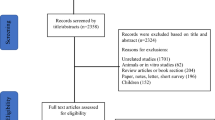Opinion statement
Sleep deprivation is ubiquitous and carries profound consequences in terms of personal and public health and safety. There is no substitute for a good night’s sleep. Sleep that is optimal in quality and quantity for individuals, factoring in their age and personal sleep requirements, will minimize sleep debt and maximize daytime performance. Therefore, setting aside an adequate amount of time for sleep should be a priority; sleep should not be sacrificed at the expense of other activities of daily living. Nevertheless, there are certain therapeutic countermeasures available for individuals who are unable to obtain adequate sleep because of medical or sleep-related conditions (eg, narcolepsy, obstructive sleep apnea) when excessive daytime sleepiness is the main feature of the condition, or residual sleepiness despite treatment for the main conditions is present. These therapeutic countermeasures may also be considered in situations in which occupational constraints (eg, rotating shift work, military duty) dictate that constant or heightened vigilance is important or critical to work performance, crucial decision making, and/or survival. Exploration of the causes of sleep loss or deprivation, whether it is voluntary, or work or family induced, and/or the effects of a medical or sleep disorder, is a necessary first step in the evaluation of a patient who has significant daytime fatigue or sleepiness. Wake-promoting substances and medications such as caffeine, modafinil, methylphenidate, and dextroamphetamine may be considered in situations in which sleep loss is unavoidable or persists despite treatment of an underlying disorder that is characterized by or associated with daytime fatigue or sleepiness.
Similar content being viewed by others
References and Recommended Reading
Chen W, Kushida CA: Perspectives. In Sleep Deprivation: Basic Science, Physiology, and Behavior. Edited by Kushida CA. New York: Marcel Dekker; 2005:1–30. Summarizes key animal and human sleep deprivation studies.
Kushida CA: Sleep Deprivation: Basic Science, Physiology, and Behavior. New York: Marcel Dekker; 2005.
Kushida CA: Sleep Deprivation: Clinical Issues, Pharmacology, and Sleep Loss Effects. New York: Marcel Dekker; 2005.
Bonnet MH, Arand DL: We are chronically sleep deprived. Sleep 1995, 18:908–911. Describes key studies exploring sleep loss and deprivation.
Caldwell JA, Caldwell JL: Stimulants. In Sleep Deprivation: Clinical Issues, Pharmacology, and Sleep Loss Effects. Edited by Kushida CA. New York: Marcel Dekker; 2005:387–446.
Schweitzer PK, Randazzo AC, Stone K, et al.: Laboratory and field studies of naps and caffeine as practical countermeasures for sleep-wake problems associated with night work. Sleep 2006, 29:39–50.
Brooks A, Lack L: Naps. In Sleep Deprivation: Basic Science, Physiology, and Behavior. Edited by Kushida CA. New York: Marcel Dekker; 2005:457–474.
Heslegrave RJ, Angus RG: The effects of task duration and work-session location on performance degradation induced by sleep loss and sustained cognitive work. Behav Res Methods Instrum Comput 1985, 17:592–603.
Pigeau R, Naitoh P, Buguet A, et al.: Modafinil, damphetamine and placebo during 64 hours of sustained mental work. I. Effects on mood, fatigue, cognitive performance and body temperature. J Sleep Res 1995, 4:212–228.
Bonnet MH, Arand DL: Sleepiness as measured by modified multiple sleep latency testing varies as a function of preceding activity. Sleep 1998, 21:477–483.
Roehrs T, Roth T: Behavioral and environmental countermeasures. In Sleep Deprivation: Clinical Issues, Pharmacology, and Sleep Loss Effects. Edited by Kushida CA. New York: Marcel Dekker; 2005:447–456.
Author information
Authors and Affiliations
Rights and permissions
About this article
Cite this article
Kushida, C.A. Countermeasures for sleep loss and deprivation. Curr Treat Options Neurol 8, 361–366 (2006). https://doi.org/10.1007/s11940-006-0025-7
Issue Date:
DOI: https://doi.org/10.1007/s11940-006-0025-7




